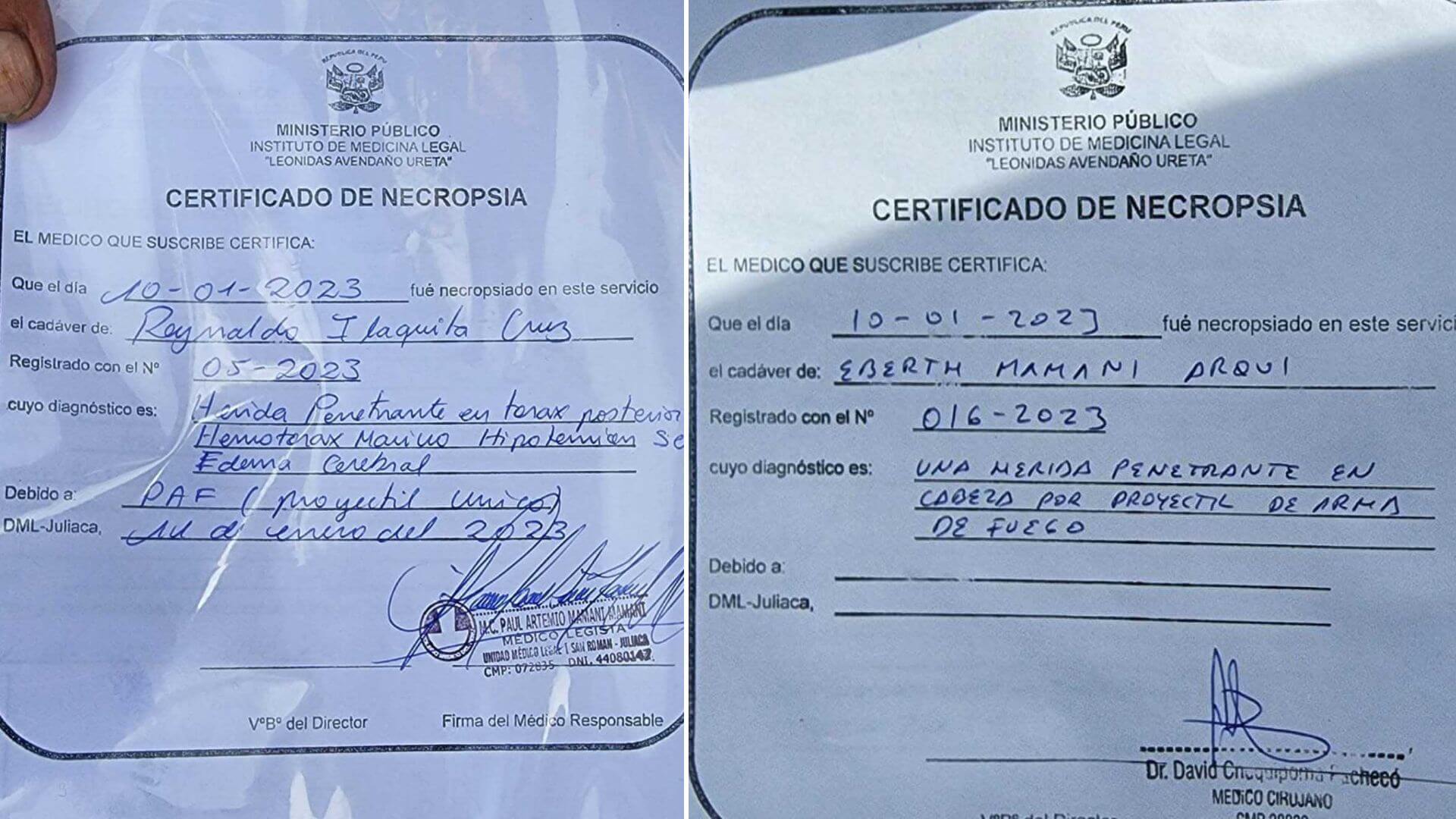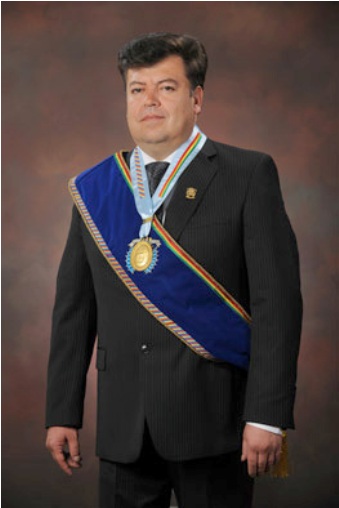|
Senkata Massacre
The 2019 Senkata massacre occurred when Bolivian military, Bolivian soldiers and Bolivian National Police, police broke up a road blockade at the YPFB gas facility in Senkata, El Alto, Bolivia, on 19 November 2019. It occurred one week into the interim presidency of Jeanine Áñez and four days after the Sacaba massacre. Rural and urban protesters had blockaded the plant shortly after the ouster of Bolivian president Evo Morales. Their protests were part of nationwide blockades by his supporters denouncing the ouster as a coup d'état, and urban protests in El Alto against the new government's desecration of the wiphala, an Indigenous flag designated a Bolivian national symbol by the 2009 Constitution. By 14 November, protesters had built barricades as part of their blockade. During the morning of 19 November, security forces escorted trucks containing natural gas canisters out of the plant. Before noon, they began clashing with protesters who dismantled the wall and attempted t ... [...More Info...] [...Related Items...] OR: [Wikipedia] [Google] [Baidu] |
Senkata
Senkata is an area in the southern part of the city of El Alto, El Alto, Bolivia, and is part of the city's 8th District. El Alto Municipality, El Alto is the second most populated city in Bolivia according to the 2012 census. Senkata has drawn international attention for multiple social protests. Location Senkata is located in the lateral areas of ''Avenida 6 de marzo'' in the city of El Alto, Bolivia. This avenue is part of the :es:Ruta 1 (Bolivia), Ruta nacional 1 - the Bolivian highway network that connects the La Paz Department (Bolivia) with the departments of Oruro Department, Oruro, Chuquisaca Department, Chuquisaca, Potosí Department, Potosí and Tarija Department, Tarija. Characteristics The District of Senkata is in the vicinity of the La Paz - Oruro highway. It houses the Senkata Plant, where YPFB, Yacimientos Petrolíferos de Bolivia has its liquid gas and gasoline installations providing these to the neighbouring city of La Paz. History Much like the other d ... [...More Info...] [...Related Items...] OR: [Wikipedia] [Google] [Baidu] |
Cochabamba Department
Cochabamba ( ay, Quchapampa Jach'a Suyu, es, Departamento de Cochabamba , qu, Quchapampa Suyu), from Quechua ''qucha'' or ''qhucha'', meaning "lake", ''pampa'' meaning "plain", is one of the nine departments of Bolivia. It is known to be the "granary" of the country because of its variety of agricultural products from its geographical position. It has an area of 55,631 km2. Its population in the 2012 census was 1,758,143. Its capital is the city of Cochabamba, known as the "City of Eternal Spring" and "The Garden City" because of its spring-like temperatures all year. History The Cochabamba valley was inhabited for over a thousand years due to its fertile productive soils and climate. Archaeological evidence suggests that the initial valley inhabitants were of various ethnic indigenous groups. Tiwanaku, Tupuraya, Mojocoya, Omereque and Inca inhabited the valley at various times before the Spanish arrived. The first Spanish inhabitant of the Valley was Garci Ruiz de Orell ... [...More Info...] [...Related Items...] OR: [Wikipedia] [Google] [Baidu] |
Juliaca Massacre
On 9 January 2023, Peruvian National Police shot at protesters in Juliaca during the 2022–2023 Peruvian political protests against President Dina Boluarte, resulting in a massacre. At least 18 people, including a medic responding to the scene, were killed and over 100 others were injured by police responding to protests in the city, with all of the deaths being attributed to gunshot wounds. The massacre was the deadliest day during the series of protests in Peru. Local media criticized the response of national media, saying that events in Juliaca were overlooked. The Inter-American Commission on Human Rights would describe the event, along with the similar killings in Ayacucho, as a massacre. Background Attempted dissolution of Congress During the presidencies of Ollanta Humala, Pedro Pablo Kuczynski and Martín Vizcarra, the right-wing Congress led by Keiko Fujimori obstructed many of the actions performed by the presidents. In the 2021 Peruvian general election, Pedro ... [...More Info...] [...Related Items...] OR: [Wikipedia] [Google] [Baidu] |
Bolivian Gas Conflict
The Bolivian gas conflict was a social confrontation in Bolivia reaching its peak in 2003, centering on the exploitation of the country's vast natural gas reserves. The expression can be extended to refer to the general conflict in Bolivia over the exploitation of gas resources, thus including the 2005 protests and the election of Evo Morales as president. Before these protests, Bolivia had seen a series of similar earlier protests during the Cochabamba protests of 2000, which were against the privatization of the municipal water supply. The conflict had its roots in grievances over the government's economic policies concerning natural gas, as well as coca eradication policies, corruption and violent military responses against strikes. On a larger scale, it can be traced to Bolivia's colonization since the 15th century and the subsequent exploitation of its natural resources (e.g., the mines of Potosí). The "Bolivian gas war" thus came to a head in October 2003, leading t ... [...More Info...] [...Related Items...] OR: [Wikipedia] [Google] [Baidu] |
El Deber
''El Deber'' is a newspaper published in Santa Cruz de la Sierra Santa Cruz de la Sierra (; "Holy Cross of the Mountain Range"), commonly known as Santa Cruz, is the largest city in Bolivia and the capital of the Santa Cruz department. Situated on the Pirai River in the eastern Tropical Lowlands of Bolivia ..., Bolivia. References Newspapers published in Bolivia Mass media in Santa Cruz de la Sierra {{Bolivia-newspaper-stub ... [...More Info...] [...Related Items...] OR: [Wikipedia] [Google] [Baidu] |
Arturo Murillo
Arturo Carlos Murillo Prijic (born 27 December 1963) is a Bolivian businessman, hotelier, and politician who served as minister of government from 2019 to 2020. As a member of the National Unity Front, he previously served as senator for Cochabamba from 2015 to 2019 and as a plurinominal member of the Chamber of Deputies from Cochabamba from 2006 to 2010. Appointed at the tail end of the 2019 political crisis, Murillo quickly became characterized as one of the "strong men" of the Jeanine Áñez administration. Minutes after his inauguration, he announced the "hunt" for ex-officials of the government of Evo Morales under various criminal charges and warned of severe consequences for acts of sedition. In May 2020, Murillo was alleged as the ringleader in the tear gas case, in which the Ministries of Government and Defense were accused of irregularly purchasing non-lethal weapons at inflated prices. His refusal to cooperate with various criminal and legislative investigations ... [...More Info...] [...Related Items...] OR: [Wikipedia] [Google] [Baidu] |
Interdisciplinary Group Of Independent Experts For Bolivia
The Interdisciplinary Group of Independent Experts for Bolivia (Grupo Interdisciplinario de Expertos Independientes—Bolivia, GIEI) is a committee of jurists and human rights experts created by the Inter-American Commission on Human Rights (IACHR) to carry out a parallel investigation of human rights violations during the 2019 Bolivian political crisis A political crisis occurred in Bolivia on 10 November 2019, after 21 days of civil protests following the disputed 2019 Bolivian general election in which incumbent President Evo Morales was initially declared the winner. The elections took pl ..., covering the period from 1 September 2019 to 31 December 2019. The group was established following discussions between the IACHR and the interim Bolivian government led by Jeanine Áñez in December 2019, and an agreement between the two in January 2020. Its four members were appointed on 23 January 2020. The Group was supported by a five-member technical team and the Argentine Forensi ... [...More Info...] [...Related Items...] OR: [Wikipedia] [Google] [Baidu] |
Human Rights Watch
Human Rights Watch (HRW) is an international non-governmental organization, headquartered in New York City, that conducts research and advocacy on human rights. The group pressures governments, policy makers, companies, and individual human rights abusers to denounce abuse and respect human rights, and the group often works on behalf of refugees, children, migrants, and political prisoners. Human Rights Watch, in 1997, shared the Nobel Peace Prize as a founding member of the International Campaign to Ban Landmines, and it played a leading role in the 2008 treaty banning cluster munitions. The organization's annual expenses totaled $50.6 million in 2011, $69.2 million in 2014, and $75.5 million in 2017. History Human Rights Watch was co-founded by Robert L. Bernstein Jeri Laber and Aryeh Neier as a private American NGO in 1978, under the name Helsinki Watch, to monitor the then-Soviet Union's compliance with the Helsinki Accords. Helsinki Watch adopted a practice of public ... [...More Info...] [...Related Items...] OR: [Wikipedia] [Google] [Baidu] |
Amnesty International
Amnesty International (also referred to as Amnesty or AI) is an international non-governmental organization focused on human rights, with its headquarters in the United Kingdom. The organization says it has more than ten million members and supporters around the world. The stated mission of the organization is to campaign for "a world in which every person enjoys all of the human rights enshrined in the Universal Declaration of Human Rights and other international human rights instruments." The organization has played a notable role on human rights issues due to its frequent citation in media and by world leaders. AI was founded in London in 1961 by the lawyer Peter Benenson. Its original focus was prisoners of conscience, with its remit widening in the 1970s, under the leadership of Seán MacBride and Martin Ennals to include miscarriages of justice and torture. In 1977, it was awarded the Nobel Peace Prize. In the 1980s, its secretary general was Thomas Hammarberg, succeeded ... [...More Info...] [...Related Items...] OR: [Wikipedia] [Google] [Baidu] |
2019 Shortages In Bolivia
During late October and much of November 2019, much of Bolivia experienced shortages caused by the 2019 Bolivian protests. Unrest prevented supplies reaching the capital district of Bolivia that includes the major cities of La Paz and El Alto Other cities were also affected., but the cities of Santa Cruz and Cochabamba were also affected. By mid-November, the interim government planned an "air bridge" to transport goods and bypass the road blockades and ditches dug by protesters. Food Food was rationed in the country, with roadblocks by pro-Morales protesters disrupting supply chains causing people to have to queue for hours at shops. However, these shops were also short on basics. An eyewitness reported that in one market of the capital, 5,000 people were waiting to buy one chicken. He referred to the shortages as "food terrorism". Independent stall owners were closing because of lack of goods, with shops rapidly increasing the prices of their stock. On roads into the city ... [...More Info...] [...Related Items...] OR: [Wikipedia] [Google] [Baidu] |




